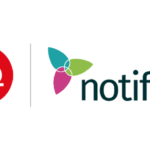The much-anticipated initial public offering (IPO) of Gemini Space Station, co-founded by Tyler and Cameron Winklevoss, has been priced at $28 per share, exceeding initial expectations. This price point positions the company’s valuation at approximately $3.3 billion. The offering has seen robust demand, with 15.2 million shares sold, capped at a total value of $425 million despite initial plans to market 16.67 million shares.
Sources familiar with the offering noted that the price range had been initially set between $24 and $26, having previously adjusted from an even lower range of $17 to $19 earlier in the week. Notably, Gemini’s stock is set to be listed on the Nasdaq under the ticker symbol “GEMI,” indicating a significant milestone for the company that has been operational since 2014 and has amassed over $21 billion in assets on its platform by the end of July.
Prominently, up to 30% of the presented shares will be allocated for retail investors via platforms like Robinhood and SoFi, enhancing accessibility to a broader range of investors. Additionally, the underwriters, including major financial institutions like Goldman Sachs, Citigroup, and Morgan Stanley, have been granted a 30-day option to facilitate the sale of additional shares amounting to 833,333 combined, which could further bolster demand.
However, the backdrop of this IPO is complex, particularly with the current climate in the cryptocurrency market. While other firms like Circle Internet and Bullish have seen successful listings, Gemini’s losses have raised eyebrows among some investors. Reports indicate a net loss of $159 million in 2024 and an even steeper loss of $283 million in the first half of 2025, underscoring concerns about the sustainability of its business model.
In a sign of institutional backing, Nasdaq has made a noteworthy strategic investment of $50 million in Gemini. This partnership could provide Nasdaq with enhanced access to Gemini’s custodial services while positioning Gemini as a distribution partner for Nasdaq’s trade management system, Calypso.
Gemini has also expanded its product offerings, introducing a crypto-backed credit card and recently launching another card in collaboration with Ripple. The latter initiative has generated significant consumer interest, with over 30,000 new credit card sign-ups in August alone, reflecting more than double the number of sign-ups in the prior month.
As the market watches the initial trading of GEMI, industry figures are keen to ascertain the future trajectory of crypto IPOs, particularly in light of recent consolidations in the prices of leading cryptocurrencies such as Bitcoin and Ether. The ongoing performance of Gemini will be instrumental in shaping investor outlook and confidence in the cryptocurrency sector as a whole.






